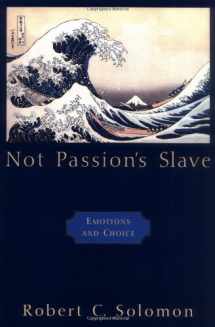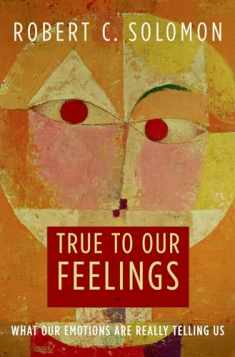
Not Passion's Slave: Emotions and Choice
Book details
Summary
Description
The idea that we are in some significant sense responsible for our emotions is an idea that Robert Solomon has developed for almost three decades. Here, in a single volume, he traces the development of this theory of emotions and elaborate it in detail. Two themes run through his work: the first presents a "cognitive" theory of emotions in which emotions are construed primarily as evaluative judgments. The second proposes an "existentialist" perspective in which he defends the idea that, as we are responsible for our emotions. Indeed, sometimes it even makes sense to say that we "choose" them. While the first claim has gained increasing currency in the literature, his claim about responsibility for emotions has continued to meet with considerable resistance and misinterpretation. The new emphasis on evolutionary biology and neurology has (mistakenly) reinforced the popular prejudice that emotions "happen" to us and are entirely beyond our control.
This volume is also a kind of intellectual memoir of Solomon¹s own development as a thinker. The essays written in the 1980s elaborate the themes of the "intentionality" of emotion and the claim that emotions are "judgments"; in this period, he is also increasingly preoccupied with how emotions vary and are identified in a variety of cultures. In the 1990's, his interests evolve to consider the social and political role of emotions and theories about emotion. The final section presents his current philosophical position on the seeming "passivity" of the passions. Despite his own critical assessment of his earlier work, he continues to argue that, in the final analysis, we are responsible for our emotions and existential quality of our lives.


We would LOVE it if you could help us and other readers by reviewing the book
Book review




